News and features
Read the latest news and features about our world-leading research, discoveries, fundraising and philanthropy. If you want to keep updated on our news, you can follow us on social media or sign up for our Search newsletter.
If you’re a journalist and want to find out more, you can contact our media relations team.
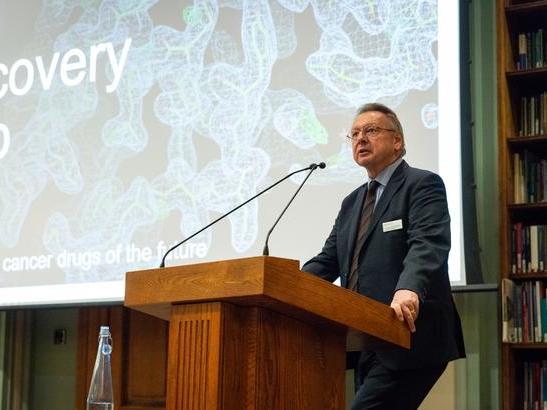
A visionary research leader, ally and mentor – Professor Paul Workman steps down as CEO
As Professor Paul Workman steps down as Chief Executive of The Institute of Cancer Research, London, colleagues from the ICR and beyond share memories of and reflections on his impact in cancer research.
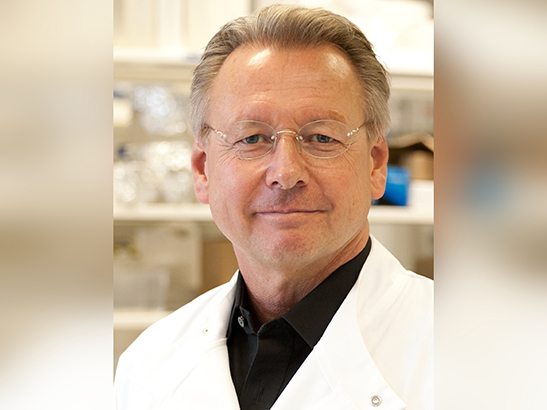
Celebrating the ICR’s achievements under Professor Paul Workman’s leadership
Professor Paul Workman steps down as Chief Executive of The Institute of Cancer Research. Here, we look back at a selection of the many ICR achievements during his leadership.
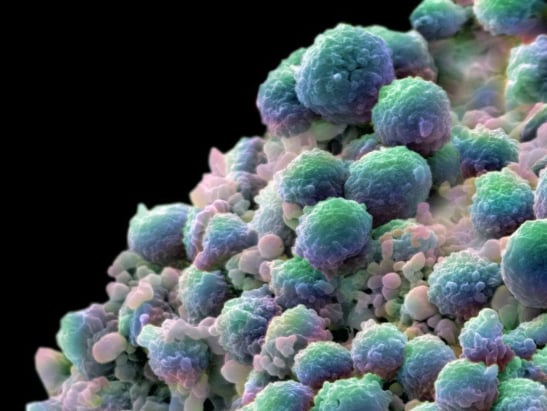
New BRCA-targeting drug could offer hope in treating advanced prostate cancer
Talazoparib, a new precision drug, can keep cancer in check in some men with advanced prostate cancer who have run out of options, a phase II clinical trial shows.

Recreating a signalling process in the test tube provides clues to bowel cancer
Scientists have, for the first time, recreated an assembly of proteins known as the β-catenin destruction complex in the test tube. This is a long-awaited step in cancer research, as mutations in this destruction complex are found in a large percentage of bowel and other cancers.
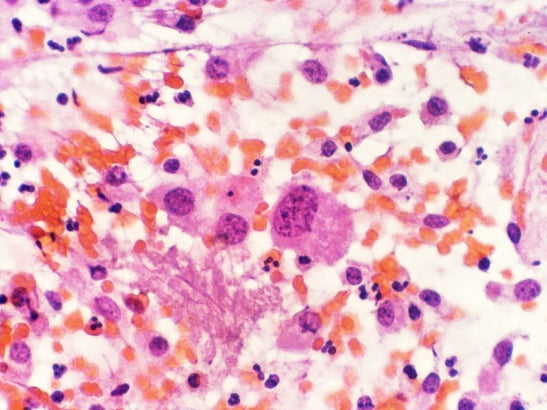
Combination drug therapy can significantly benefit patients with newly diagnosed blood cancer
A four-drug combination therapy that includes the novel drug carfilzomib can slow the progression of the blood cancer myeloma in patients who have been newly diagnosed with the disease, a phase III study has shown.

Scoring system predicts head and neck cancer patient response to immunotherapy
A prognostic scoring system that is cheap, efficient and reliable can predict how patients with relapsed and/or metastatic head and neck cancer will respond to immunotherapy, new research has shown.

Taking on the challenge of treating sarcomas
In the UK, sarcoma diagnoses make up more than 1% of all cancer cases. But sarcomas are hard to understand and treat, and outcomes for patients with advanced disease remain poor – they are cancers of urgent unmet need. Sarcomas are a major focus for our scientists, who are forging new collaborations and opening up fresh avenues for research and treatment.

The ICR responds to NICE’s recommendation not to approve abiraterone as first-line treatment for advanced prostate cancer
The Institute of Cancer Research, London, is disappointed at the decision by NICE not to recommend abiraterone as a first-line NHS treatment for newly diagnosed, advanced prostate cancer.

Race equality: how the ICR is going beyond its statements, and taking real action
One year ago the ICR made commitments to tackling racial inequality in our organisation and beyond. To mark the anniversary, Gege Li spoke to some of the people involved in our progress to date and discussed the challenges ahead.

The gift of giving: how your generosity can lead to change
Lara Jukes is the Director of Development at The Institute of Cancer Research, London. As we thank generous donors to our Spring fundraising appeal, she reflects on why giving is an integral part of our culture and how much of a difference it can make to those who need it most.
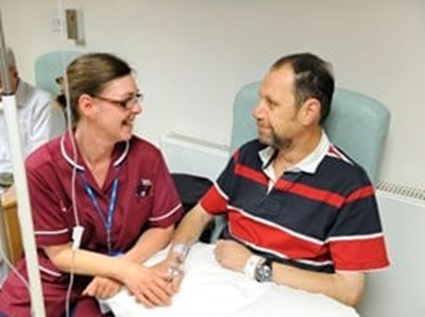
New drug combination attacks prostate cancer on two fronts to keep men healthy for longer
Men with particularly aggressive prostate cancers can be treated more effectively by combining an existing targeted medicine, abiraterone, with a new experimental drug to block two of cancer’s growth signals at once, a major new trial shows.

canSAR: The AI ‘knowledgebase’ revolutionising cancer drug discovery
Since its release in 2011, canSAR has become the largest, public, cancer drug discovery resource in the world. On the 10-year anniversary of canSAR we take a look at how it’s shaping the future of drug discovery.
